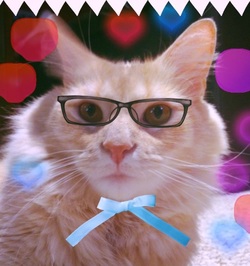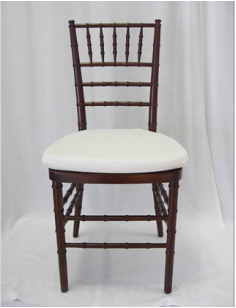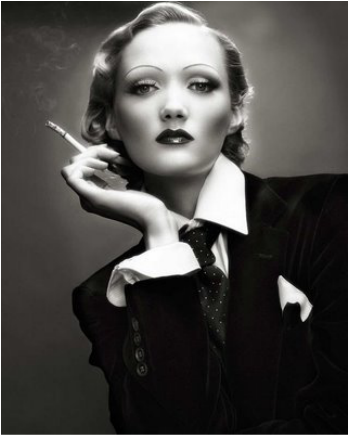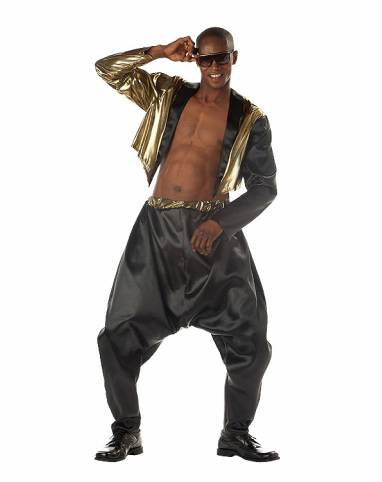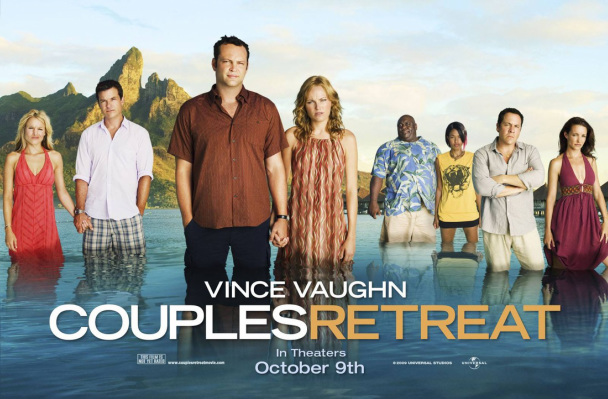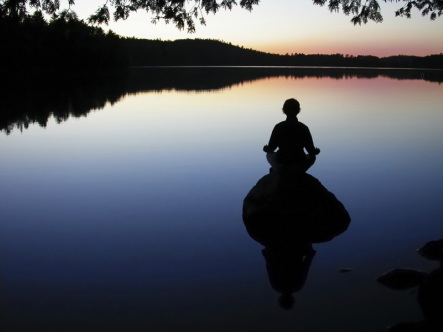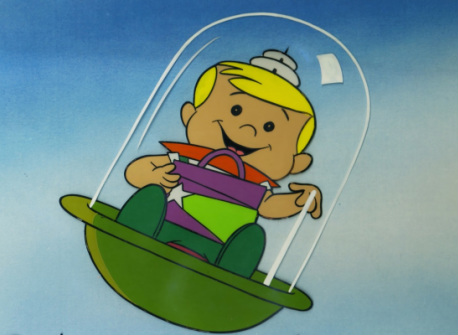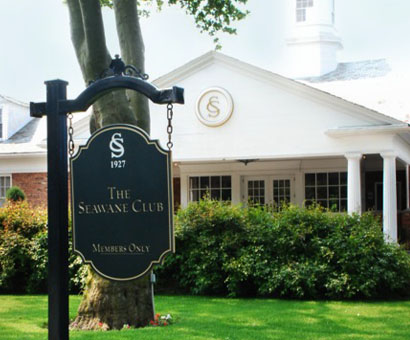|
1. Cats were treated like gods in ancient Egypt but they’re not the type to keep bringing that up, unlike your cousin who just got a book deal. 2. It's great entertainment watching your cat scratch furiously at the mirror in perfect synchronicity with the cat on the other side while trying to gain access into the secret world in the a-ha video. 3. Cat’s never say, Let me know if I can do anything, and think they’ve done something. 4. Your cat will neither be impressed nor jealous that you can still fit into your jeans from high school. 5. A cat won't brag that her one-week-old kitten is a genius just because she’s able to go to the bathroom by herself. 6. Cats don't try to board in the zone they’re not suppose to. 7. No need to feel embarrassed if your in-laws walk in on you stroking your cat. 8. Your cat doesn’t care one iota what your current job is so long as there’s food in the bowl and the box is clean. 9. Cats never “pretend-like” your presents. If he doesn’t like the artisan feather-teaser with organic catnip made from recycled materials, you’ll know it. 10. In the history of the universe, no cat has ever said, You know what? I’ll just do it myself.
1 Comment
When my twins -- Princess Leia and Elroy Jetson* -- were in second grade, their teachers asked them to bring a plain white sweatshirt to school, upon which they would paint a reindeer. The sweatshirts were to be their required dress for the upcoming holiday concert. I was on board with the idea, so it caught me off guard when a week later the kids excitedly showed me their sweatshirts, which, instead of reindeer, had giant yellow menorahs painted on them. The flyer sent home to parents didn’t mention anything about design options. How did the teachers even know my children were Jewish? Then I remembered an English assignment a few weeks earlier asking the children to write a letter to Santa Claus. Elroy Jetson wrote, Dear Santa, I’m a Jewish boy but I’d like to meet you anyway. Technically, the children are half-Jewish, since their father is not Jewish. But apparently having one Jewish parent was enough to earn them a yellow Star of David, I mean, Hanukkah menorah plastered on their chest at the elementary school holiday concert. *** In the 1980s a slew of Supreme Court cases examined the constitutional mandate of separation of church and state. These decisions paved the way for Christmas trees and reindeers to be permitted in public schools, but ixed-nay baby esus-jay. The Court reasoned that so long as public schools could not been seen as promoting one religion above anther, Santa Claus was kosher. As a result, the common practice where we live is that the kids’ public school puts up a seven-foot-tall decorated Christmas tree in the school foyer, complete with prop presents and faux snow, and then scotch tapes to the wall a paper menorah, bought at the Party Store for $3.99, and calls it even-steven. It’s not so much the tree and surrounding accoutrements, but rather the gratuitous nod to Hanukkah that bugs. I understand it though. Hanukkah is probably the most easily accessible holiday to non-Jews, not like Yom Kippur where there aren’t any props like a Menorah and certainly no candy. But Hanukkah has nowhere near the same level of importance to the Jewish people as Christmas does to Christians, not even close, not even in the same solar system. And please don’t misunderstand. I like Christmas. Really. I’m married to a Christian. I look forward to spending Christmas Eve at my in-laws every year eating homemade cookies. I love driving around at night with my kids, oohing and aahing at the decorations on our neighbors’ houses. I listen to the Holly channel on satellite radio and never complain about the throngs of people at the mall. Christmas shopping is the best—the sales, the fantastic selections, how nice people are. Though in all candor, I should admit I love shopping any time of year. Quite simply, I enjoy everything there is about Christmas, minus the Jesus thing, of course. So I was totally cool with my kids wearing reindeer and more than slightly troubled when the teachers singled them out for their religious differences. “It’s no one’s business what religion we are,” I complained to anyone who would listen. But I knew the teachers were only following the Supreme Court directive, albeit clumsily. They needed to ensure that they were celebrating all religions if they wanted to have a tree, reindeer, and letters to Santa in the classroom. Incidentally, there were a fair number of children of Indian descent in the class that year, way more than my two Jewish children, but I guess Pancha Ganapati was a bridge too far. Once my kids were outed as Jewish, then came the religious harassment. I got multiple emails and calls asking me to read a Hanukkah story to my kids’ class. Would I lead the students in a game of dreidel? The school librarian wanted me to cook potato latkes for 75 second-graders using only a hot plate in the library. Let’s be clear about one thing. Despite having both sets of grandparents emigrate to this country from the shtetls of Eastern Europe, I’ve never made latkes in my life. The teachers were persistent. Their entire Christmas celebration and December lesson plan (which might have been one in the same) depended on my willingness to embrace my Jewish heritage. “This is such a great opportunity to teach the children about your religion,” one said. A valid point but I still said no. Who was I to teach anyone about being Jewish? I essentially cheated at my Bat Mitzvah when the Cantor slipped me the English transliteration of my Torah portion as I was about to start reading the Hebrew. And just as I wasn’t crazy about my children becoming the class token Jews, I wasn’t comfortable becoming the class token Jewish mother. Then my 76-year-old mother offered to come to the kids’ school and read a Hanukkah story. The teachers were ecstatic—a real-life Jewish Bubbe! The offer surprised me coming from my feminist mother who routinely disparaged the archetype of the “doting Jewish mother.” I’m too busy earning a six-figure income to stay home and make matzo ball soup was a common refrain heard in our house growing up. Our celebration of Hanukkah entailed nothing more than my mother reminding the housekeeper to turn the next bulb on the electric menorah before she left for the evening each night. When the day came, my mother read Sammy the Spider’s First Hanukkah. She passed out mini-dreidels and chocolate gelt to each student and led the class in a game of dreidel, explaining the meaning of the Hebrew letters on all four sides. She did a good job keeping the kids’ attention. I watched from the back of the room, happy to observe. Later I asked my children how they felt about their grandmother coming to class and wearing a yellow menorah amidst a sea of reindeer. “I like being different!” Princess Leia declared with a level of confidence I knew I would never possess myself, not in a million years. *** Four years later Elroy Jetson and Princess Leia entered middle school and became acutely aware of whether they fit in with their classmates. All of a sudden everything about their parents and grandparents embarrassed them. And when their teacher asked the class who celebrates Hanukkah, Elroy Jetson and Princess Leia, perhaps picking up on my own ambivalence, sat on their hands and turned mute. *Not their real names It’s been a while since I’ve posted on the blog. I’ve been preoccupied with my children’s B’nai Mitzvah, which was last month. Even if you regularly watch Jon Stewart, you might not know that a B’nai Mitzvah is when a boy and a girl have their Bar and Bat Mitzvah together. I have twins -- son Elroy Jetson and daughter Princess Leia* -- so for me, it was a double “simcha,” which is Hebrew for “joyous celebration.”
As the B’nai Mitzvah approached, I worried about many things. My son gets the occasional nosebleed when the weather gets dry and cold. Once we attended a friend’s Bat Mitzvah and Elroy’s nose started bleeding in the middle of the service. I couldn’t even begin to imagine the size of the donation we would have to give the temple should my son get a nosebleed during his Torah reading. Is it even possible to clean blood from a Torah scroll? There must be a place in Brooklyn that specializes in such things but I didn’t want to have to find out. Then on the day before the B’nai Mitzvah, I woke up to find I had gotten my period . . . five days early. God was testing me, not unlike when he tested Abraham by asking him to sacrifice his only son Isaac (which coincidentally happened to be the kids’ Torah reading the following day). And it wasn’t like, “Oh, my period is just beginning.” No. It declared itself as boldly as when Moses turned the Nile to blood.** “Better you than me,” said Princess Leia. I worried it was going to be the first mitzvah service in five thousand years of Jewish history with an intermission. “And to think you were worried that Elroy might bleed on the Torah,” said my husband. But most of all, I worried about that cringeworthy Jewish tradition--the Horah, which is Jewish for embarrassing chair dance that may cause injury or psychotherapy. From what I learned on the Internet, the Horah has its origins as a Romanian folk dance. It was commandeered by the Jews 100 years ago, then mashed together with the Jewish tradition of lifting a bride and groom on chairs, which probably came from the tradition of carrying royalty on chairs. When my ancestors came to this country from Russia and Poland in the early 20th century, they brought with them the Horah and bagels.*** Since then, the lifting of the honoree on a chair has expanded from brides and grooms, to the Bar and Bat Mitzvah child, to parents and grandparents of the guest of honor. Generally it goes like this. The band or DJ plays Hava Nagila, the Israeli folk song that accompanies the Horah. As soon as the first few bars of the familiar clarinet riff is heard, like a Pavlovian response inbred from years of living in the shtetl, Jews stampede the dance floor forming giant clumsy circles. The guest of honor is seated on a chair in the center and the chair is lifted up and down in time to the music, more or less. It’s not all that different, really, from riding a mechanical bull in a country western bar. I didn’t want to be in that chair. I don’t like being the center of attention in that way, which I realize seems ironic coming from someone who blogs about her life. It may have something to do with my own Bat Mitzvah experience over thirty years ago. Suffering from a clinically diagnosed excessive perspiration condition at age 13, the last thing I wanted was to be hoisted on a chair above 100 people with my mother yelling at me to raise my arms for a picture when my armpits were like the day after a tsunami—water everywhere. But I knew I would be expected to be in that chair. And, it wouldn’t be enough to just submit to the Horah. I had better look like I was enjoying it. I had relatives coming from the old country (Brooklyn) and they expected it. Doing the Horah was viewed as a crucial part of the B’nai Mitzvah on par with the Torah reading, lox spread, and photo booth. And if you think the pressure from my Jewish relatives was bad, the pressure from my gentile friends was worse. Being married to a non-Jew, half the party was going to be non-Jewish and they wanted an authentic mitzvah experience. I tried to imagine how the classiest people I could think of would do the Horah. How would the great Meryl Streep hold herself while being lifted in the chair? I asked my older sister Lisa Simpson* for advice. We combed the Internet looking for inspiration. From our research, we determined that a strong straight posture is important or you risk looking like you’re seated on the toilet. Women must also keep their ankles crossed to avoid flashing Uncle Mordecai while he’s grasping a chair leg. And above all, you must look like you’re having fun. I can’t stress this last requirement enough. You need to convincingly show you’re capable of celebrating appropriately or cousins you haven’t seen in 10 years will gossip that you’re too uptight to enjoy the moment, and for all the success you’ve achieved in your life you haven’t learned what’s truly important, which makes you a terrible mother and role model to boot. At the luncheon, as soon as Hava Nagila started playing, the crowed grabbed Princess Leia. So petite, she floated up on that chair like a helium balloon. Then came Elroy Jetson. He wore the same expression as when he rode the Frog Hopper at the amusement park last summer, saying it was fun, but not scary. My husband said he never believed he was in any danger of falling when he was in the chair, but from all eyewitness accounts, it looked like a real possibility. My brother grabbed me when it was my turn. Within seconds I was above the crowd. My friend snapped a photo with his phone and I’ve been studying it like Torah ever since. I was sitting straight up with my back away from the chair, grasping the sides of the seat, my ankles crossed. My eyes were closed and mouth open. I don’t remember much during my 20 seconds in the chair except making one loud continuous noise somewhere between screaming and laughing. Lisa Simpson said my form was perfection. *Not my children’s or sister’s real names. **The first of ten plagues Moses brought upon Egypt in an effort to convince Pharaoh to release the Jews from slavery in ancient times. ***I realize they brought over other more important things too, but I’m not focusing on those right now. Have you heard the latest out of Harvard? Our body language affects not only how others view us, but how we view ourselves. From the research of social psychologist and Harvard Business School professor Amy Cuddy,* how we pose can affect our brain chemistry. Pose in a power pose for two minutes -- think hands on your hips like Superman or Wonder Woman -- and you will increase your testosterone and decrease your cortisol levels (the stress hormone), making you feel more powerful and less stressed out. In her research, Cuddy and her team applied power posing to real-world scenarios. She found that job candidates who held power poses for two minutes prior to a job interview scored significantly higher in the interviews than those candidates who did not power pose. After I read this on the front page of the New York Times style section a few weeks back, I at once locked myself in my bathroom, put my hands on my hips, and started timing. It felt awkward and unnatural. Sad really. My body had spent forty plus years tacitly speaking the language of anxiety and passive-aggressiveness. This new language of power was so foreign to me. It was like when I tried to learn calculus in twelfth grade. Ridiculous, it can’t be done. “Where’s mom?” I heard my son ask. “She’s in the bathroom. Give her some privacy,” answered my husband. “No, no. It’s not that. I’ll be out in exactly 52 seconds,” I yelled through the door. The second minute was easier. My body adjusted slightly. I emerged from the bathroom feeling, if not exactly powerful, then freshened up some, like when you use those steaming hot washcloths on a red-eye flight. After my power pose experiment, I wondered what effects other poses might have. If I stood in pee pose for two minutes, would I suddenly have the urge to pee? The pee pose, popular among starlets photographed on the red carpet, is when you cross your legs while standing to make your body appear more narrow. Your silhouette tapers from your hips to a single leg, if you will; it’s like doing ballet’s fifth position when you’ve never taken a ballet class in your life. Put another way, think of a four-year old girl telling her mother she has to go to the bathroom and her mother responds “in a minute” but the checkout line at Marshall’s is taking forever. I stood in pee pose for two minutes. Afterwards I detected a vague desire to empty my bladder but I can’t be certain that’s from the posing. I’ve been that way ever since childbirth. Then I tried the smoking pose. I held a pen between two fingers like a cigarette and pretended to smoke. I brought it to my mouth, took a drag, exhaled an imaginary cloud, and flicked pretend ashes into a pretend ashtray. I played with my hair while holding the pen, careful not to singe my ends like that one time in high school. I became instantly more glamorous, more like a writer. I hadn’t done any of those gestures in over twenty years. It was like riding a bicycle. I didn’t miss the taste and smells of smoking but by God, I missed the posing. I was channeling J.D. Salinger, John Steinbeck and Virginia Woolf—all the greats smoked. I’m not going to start smoking again, but I’m giving serious consideration to pretending to smoke in an effort to improve my craft. Asshole pose was next. I lifted both hands in the air and raised my middle fingers straight up, facing an imaginary foe. Like a reflex, my mouth went into an angry smirk. I tried talking my mouth out of its outrage, reminding it that my hands were just posing. But the mere act of raising my middle fingers agitated my brain into a state normally associated with talking on the phone with my health insurance company. I needed a loving pose quick to realign myself. Wrapping my arms around my body to give myself a hug wouldn’t be right. Cuddy says that making our bodies small is the opposite of a power pose. Small makes us feel weak and subservient. I remembered the “facehold” pose. As predictable as the ocean tides and August back-to-school sales, the pose for love in Hollywood is a man cupping a woman’s face in his hands and gazing into her eyes with a look that says, Despite the obstacles of your disapproving parents, crazy ex-boyfriend/husband, high-powered career, death of my former wife/child, and the tsunami/tornado, it was you all along. How could I have been so blind?” I executed the pose on myself, assuming the Home Alone position, hands on cheeks, chin tucked into the base of my palms. I was overcome with, not love, but the need to rest my elbows on my desk and shut my eyes. I had inadvertently recreated my favorite napping position from college. Still needing to do something, I laid my hands over my heart chakra (or heart for those of you who don’t believe in such things). My hands rose and fell with each breath. The rhythmic movement soothed me. After two minutes, I had completely erased any lingering effects of acting like an asshole. Who would have guessed it could be that easy? *Amy Cuddy’s TEDTalk, with over four million views: In my thirties, I worked as a buyer for the home shopping network QVC. Because of my job, I was able to introduce my mother to fashion designer Bob Mackie. Upon meeting Mr. Mackie in the QVC green room, while surrounded by the Mackie design team, my mother explained why she was such a fan of his embellished knit pants suits. “They’re great for travel,” she told him. “I have to be comfortable when I’m sitting on a plane. You can’t travel with a tight crotch. That’s why these are so great.” To illustrate her point she grabbed a fist full of fabric from between her legs, squatted slightly, and pulled. “See? Plenty of room.”
When my mother was younger and her crotch could withstand the pressure of fabric, she favored Liz Claiborne’s high waisted wide-leg jeans. The jeans rose to her navel and wrapped her crotch in denim the way you’d wrap a leftover chicken breast in Saran Wrap. But as she got older, Bob Mackie became her go-to designer for casual clothes. While listening to my mother, Mr. Mackie smiled and nodded. I think he enjoyed meeting her in the way you enjoy an exotic dinner out in a foreign country. You’re happy for the experience but not certain how soon you want to repeat it. For years later, during merchandising meetings with the Mackie design team, if we got stuck on a style or silhouette, we’d volley ideas around. Did the leg need to be wider or the inseam longer? Were the pockets too small or the wrong shape? We’d come to an impasse and inevitably design fatigue would set in. Then someone would offer up a reminder of our purpose, of the thousands of customers who appreciated our efforts and sacrifice, and yell out like a battle cry, You can’t travel with a tight crotch! Last month my husband Mike Brady* and I returned to the yoga center in the Berkshire mountains for a few days of rest and relaxation. There were a number of workshops offered that weekend: a health-oriented workshop led by a physician, an advanced yoga workshop, a writing workshop, and a couples’ workshop called Getting the Love You Want. I was intrigued by the couples’ workshop, not because I’m unhappy in my marriage but because Couples Retreat starring Vince Vaughn is one of those movies I stop and watch every time I come across it channel surfing. Vaughn heads up a group of four couples, all in various states of marital distress, at a couples retreat in the Caribbean. As you would imagine, hijinks abound, including a yoga class with an overly enthusiastic instructor. I enjoyed the movie and thought the critics were unnecessarily harsh. This despite the fact that at the end of the picture, Vaughn declares that all he truly desires in this world is to eat at Applebee’s once a week with his wife and kids, making me feel like a shrew for complaining whenever Mike Brady takes me and the kids there. I didn’t ask Mike Brady if he’d be willing to sign up for the Love workshop because he wouldn’t want to and I know it. We’re the kind of couple that prefers to keep our declarations of affection private, preferably at night, under the covers with eyes closed, so that in the event it should ever become necessary, either one of us could legitimately claim they had been talking in their sleep. I signed us up for the health workshop. The program promised to educate us on healthy eating and stress management. Our workshop room was filled with 25 participants. We went around the circle and introduced ourselves and told the group what our intention was for the weekend, which is just a fancy word for goal. I said I was looking for healthful ways to treat PMS irritability and to get a definitive answer on whether soy was good or bad for me. When it came to Mike Brady’s turn, he said that he was there to listen and to help out any way he could. “Who are you?” I mouthed at him. It’s not hard to see why the kids in his elementary school class disliked him. In the workshop we discussed phytonutrients, metabolic syndrome, and the seven chakras of the body, among other things. During our break, I noticed a huge gathering of people in the main assembly hall next door. Two hundred people were seated while two workshop leaders with microphones weaved their way through the audience. Audience members held a thick workbook and above them all, a giant projection screen read: I bring my unmet need of ___________ from childhood into this relationship. The workshop leader handed a woman his microphone and she started speaking. I lingered at the door trying to listen until Mike Brady pulled me away. At our next break, I saw a couple seated in the lounge area immediately outside the workshop rooms. The man sat with one hand resting on the woman’s shoulder. With his other hand, he held her hand, their fingers intertwined. They faced each other looking as if they were having an intense conversation, except neither one was talking. I watched them from a place where I could pretend to read a notice on the wall, waiting to see if someone spoke. They were oblivious to the activity around them, which I believed made it acceptable for me to keep spying. I watched and waited but they did nothing but stare into each other’s eyes. I eventually returned to my own workshop. That afternoon Mike Brady and I learned to mindfully eat a raisin. In the evening we walked around the grounds enjoying our last cup of Inka, a grain beverage coffee alternative popular at the center. Mike Brady remarked how beautiful the sky looked, light still lingering at 9 p.m. and how peaceful the world seemed at that moment. Something about that couple that afternoon made me prickly. “It’s quiet because everyone is in their rooms looking at each other,” I said. The next morning in the communal dinning room, we ate our silent breakfast. Mike Brady was engrossed reading the laminated cards at each table describing the center’s cooking philosophy. My attention drifted around the room. Many people had their workbooks with them. They were reading and taking notes. I watched an older woman get up from her table and walk toward the buffet when the man across from her, who looked to be in his sixties, reached out and brought the woman’s face down to his and kissed her on the lips. I witnessed another woman run her hand down the back of a man’s head and kiss him on the neck. Was ecstasy on the buffet and I missed it? These were ordinary middle-aged people, the kind of people you’d expect to find on the boardwalk in Ocean City, New Jersey, America’s greatest family resort. They were diligently jotting down notes in their workbooks in between bites of food as if studying for the bar exam. That is, when they were able to keep their hands and mouths off each other. Walking to our workshop I began to pout. “Maybe we should have signed up for the couples workshop,” I said. “Why?” asked Mike. “Don’t you see what’s happening? It’s a love orgy in there.” “I’ll tell you what’s happening, a new wing for the center. Cha-ching.” “Make jokes but 200 people are getting the love they want while we’re learning about leaky gut.” Watching the Love attendees raised the question, “Why can’t we be like that?” I thought. Mike Brady’s heart chakra needed some tweaking. Or maybe my throat chakra needed help so I could better communicate how I felt. Though it wouldn’t hurt for Mike Brady to consider the state of his sacral chakra, his ability to accept new experiences. However, if I’m being honest, I know my solar plexus chakra, which affects self-esteem, is not where it needs to be. I’m constantly comparing myself to others. Still, it wouldn’t kill my husband to maul me once in awhile in between bites of tofu scramble. On our final morning, the last exercise was for each of us to write goals for ourselves. That’s fairly standard workshop protocol. I wondered what kinds of goals the people next door were writing. Once when I had peaked into their room, I saw on the giant projection screen: Heal Your Relationship Heal Your Children Heal the World That seemed like a lot of pressure. Now I had to face the possibility that my moodiness and obsessive tendencies were not only irritating to my husband but also irritating to the world at large. I considered this for a moment. In the end, I wrote my goal: make kale chips. Perhaps Mike Brady and I could have improved our relationship had we taken the Love workshop. But wasn’t simply time away without the kids improving our relationship? The weekend was still valuable. We were both feeling energized about making healthful changes to our diets. As we packed up our car, Mike Brady said how happy he was that we did this and hugged me, looking to anyone who might have been watching, as two people who had spent the weekend getting the love they want. *Not his real name but one he reluctantly agreed I could use for the blog. A few years ago, my husband, Mike Brady,* and I decided to spend a weekend at a yoga health center in the Berkshire Mountains. I had been to the center once before and had enjoyed the daily yoga, organic food, and walking trails. The center also offers a variety of health-oriented workshops for those who like to mix self-improvement with their vacations. The workshops have names like One Breath at a Time, The Straightforward Path, and Ignite Your Passion. I signed up for a meditation workshop, which I thought would help me figure out what I should do with my life. This was Mike Brady’s first time at the center. He preferred not to improve himself and said he’d be content to read a book and look at the lake.
On my first day, I left my sandals at the door in a row with the others, and joined the dozen attendees sitting in a circle on the floor of the meditation room. Our meditation instructor bore a striking resemblance to the actress Judi Dench. We went around the circle and introduced ourselves. There were a husband and wife in their sixties from India, a good-looking man in his forties from California wearing a concert tee shirt, a young woman with an eyebrow piercing, and the rest were assorted housewives from Connecticut. Most people would have lumped me into that last group just by looking at me, but I live in Pennsylvania. At our first session, Ms. Dench outlined the various meditation techniques we would be learning: seated meditation, walking meditation, metta meditation, alternative nostril breathing, and using mala beads. And to enhance our meditative experience, she strongly suggested that we stay in-silence during our time at the center. Whenever we were outside the meditation room, we were not to talk unless absolutely necessary. She passed out nametags for each of us to clip onto our clothing, but instead of our names, they said, “In Loving Silence.” Mr. California raised his hand. “I’m here with my girlfriend who’s taking a different workshop. Am I allowed to talk to her?” “No. And I’d like you to conserve your energy as well,” said Ms. Dench. The women in the class giggled like middle schoolers, myself included. After our first session, I met Mike Brady back in our room. He pointed to the “In Loving Silence” sign on my chest. “Oh my God. Are you truly not going to speak?” “Yes. I want to get as much out of this weekend as possible so I’m going to try to really do this.” I whispered. “Wow. Good for you.” I nodded. “I’m going to get changed for afternoon yoga,” said Mike. I nodded and watched Mike put on his workout clothes. He put away his laundry and tidied up his side of the room. I put on yoga pants and did the same. It felt out of order somehow to be in the room with him with neither one of us talking when we weren’t in the midst of an argument. As we left the room I whispered, “Did you have a good day by yourself?” “Whispering is still talking, Terry.” At dinner in the communal dining hall, I made my way down the buffet and joined Mike at a table. I pointed to my turkey kibbee with yogurt cucumber sauce and pantomimed rubbing my tummy and smiled. He raised an eyebrow. “Is Charades allowed?” On his plate were tofu fajitas with Mexican bean salad. If he closed his eyes, he might as well have been at Chili’s at the mall. I had the urge to tell him to try some of the more unusual offerings in the buffet. I took a breath. He can eat whatever he wants, I told myself. Prohibited from making conversation, I looked around the dining hall. I noticed the trees outside the windows and the huge paintings of Buddha decorating the walls. I watched groups of women eating together and tried to guess which workshop they were attending by eavesdropping on snippets of their conversations. I counted the men I saw and from that, estimated 25% of attendees at the center were male. I observed these thoughts as they passed through my mind like clouds floating across the sky. After dinner, Mike and I took a walk around the grounds without speaking, and then went back to our room. There was not much to do at the center at night. There is no TV in the rooms so by 9:30 I was asleep. The next morning we got up early and I had an overwhelming need to talk, to say things like: “Are you going to take a shower now or wait until after morning yoga?” “Do you want to use the bathroom first?” “What do you think the weather will be like? “Did you use my bug spray yesterday? I can’t find it anywhere.” These are the kinds of things I say all the time, how I fill the air with noise. Ms. Dench said before speaking, we should ask ourselves, Are we improving upon the silence? In my case, probably not. So on this morning, I said none of it. I found my bug spray myself, decided to bring a sweater without a ten-minute debate over which weather app is most accurate, and simply waited until Mike was out of the bathroom for my turn. We took a morning yoga class, ate a silent breakfast, and then I waved goodbye. As I walked to my meditation workshop, I couldn’t help but notice how well Mike and I were getting along. During the workshop, when we were not actually meditating, we were allowed to talk and encouraged to ask questions. One of the women from Connecticut raised her hand. “Nothing seems to happen when I meditate. I fall asleep or my mind starts thinking of a million things. I’m just not getting it. And I really want to experience . . . God. You know, like in the book Eat, Pray, Love . . . What am I doing wrong? “Aaaaaah. Yes.” said Ms. Dench. We waited for her to expound on her answer, but she didn’t. “No really. I want a real answer,” the woman said. “A real answer,” Ms. Dench repeated. “Yes, a real answer. I read the book, built the yoga room, been trying to meditate now for almost a year, paid for this workshop, and I don’t even know if I’m doing it right. Have you read Eat, Pray, Love?” Ms. Dench smiled kindly at the woman. “Keep at it.” “That’s it?” “That is it.” She said it without any trace of annoyance. The Indian man nodded his head in agreement. Another woman raised her hand. “Can you recommend a good book on meditation?” “Go into the gift shop downstairs and walk past the book shelf. Whatever book falls off the shelf, take that one.” I had to admit there was a certain kind of beauty in the simplicity of her answers. Does it matter which technique you use to meditate so long as you meditate? Isn’t the key to doing anything to keep doing it? At the end of the day’s session, Mike and I met up and decided to walk the wooded path down to the lake. It was late afternoon in July and after sampling half a dozen meditation techniques I was feeling peaceful. My mind felt as calm as a lake after a rainfall. This is rare for me, to not be plagued by constant thoughts of what I need to be doing next. I was moved by this new sense of calm and immediately wondered, is this how yogis feel all the time? Why can’t I feel this way all the time? Then I stopped my mind and focused instead on just being grateful for feeling at peace. I walked with that thought, thankful for that moment in the woods, my gratitude growing larger with each step, then to such size that I could no longer contain it. “I’m so happy we’re here,” I whispered to Mike. Just as the words left my mouth, the Indian couple appeared from around the curve in the path, walking silently in our direction. “You are totally busted,” said Mike. After dinner, we headed back to our room and lay in bed reading. Mike moved his body close to mine. I could tell he was feeling romantic. I was too. It had been two days of mountain air and yoga hip openers. There was no alcohol to make us sleepy, no TV to distract us. I hadn’t felt this close to my husband in years. Without talking, we were forced to communicate by actually looking at each other and using hand gestures. We didn’t toss our words out while distracted by something else as we normally did. So there had been no miscommunications, no slights, no you’re not listening to what I’m saying or that’s not what I meant at all. You obviously don’t have a clue as to who I am. He started touching my thigh. “I’m supposed to conserve my energy,” I whispered. He kept going. I read the same sentence three times before finally putting my book down. “Okay. But I’m not going to talk.” I slid beneath him. Within five minutes I’d forgotten all about In Loving Silence. I couldn’t help myself. I told him how much I loved him, how good everything felt, how much I didn’t want him to stop. I was bingeing on talk, high on yoga and healthy food and love. I told him how I wished it could be like this always, how I wished we never had to talk again. *Not his real name, but one he reluctantly agreed I could use for this blog. In the past ten months my son Elroy Jetson* has grown four inches. I’m an average height woman, though in some Pacific Rim countries I’d be considered modelesque, but now Elroy is taller than me. He is twelve. Elroy has always been tall for his age. By ten, he had reached the height of a full-grown North Korean soldier.
Last summer Elroy and I took a bike ride together and he struggled to keep up with me. As we rode around our neighborhood, the hills proved too steep at certain points and Elroy had to get off his bike and walk his way to the top. Earlier this week we took the same path. “No getting off your bike this time,” I shouted over my shoulder at him. “Push yourself.” I dug in, straining from my gut as I climbed the hill when Elroy came whizzing by, smiling. He yelled over his shoulder, “Don’t worry, Mom. I’ll wait for you at the top.” The irritating part was how he said it—as if riding faster than me was something he had always done instead of this unforeseen reversal of fortune. He wasn’t even winded. If Elroy was an extremely active boy who played travel soccer three times a week, I could have anticipated this newfound strength and endurance. But that’s not the case. He may shoot basketballs or ride his bike around the cul-de-sac, but there are no training schedules. He doesn’t play sports so much as dabble in them. He’ll play flag football and basketball in non-competitive leagues for an hour or so a week during their designated seasons before moving on to the next activity. His preferred recreation is Xbox and annoying his sister. Elroy was born tiny weighing three-and-a-half pounds. While in premature labor, I sneezed once and he appeared. Small and weak, he spent three weeks in the hospital. Now he’s growing like one of those time-lapse nature films. That afternoon my husband called in from the road and told me that Elroy had texted him earlier: I beat Mom biking today. Badly. “Ah, youth,” said my husband. “And testosterone.” It was just Elroy and me alone in the house. His father was traveling and his sister was away at camp. After dinner, I asked Elroy if he’d like to arm wrestle. He laughed at me, then shrugged. “Okay.” A brief thought that I might be turning into The Great Santini crossed my mind, but I couldn’t help myself. I had a sudden urgent desire to find out how strong Elroy had become. Leg power and endurance is one thing but arm strength is a totally different ball of wax. Elroy was an inch taller than me, but I still outweighed him by twenty pounds. And I do yoga, which I was certain would give me the edge. We grasped hands at the kitchen table. “Are you trying?” I asked “Yes,” Elroy said. “Really?” “Sort of, but I don’t think you’re trying.” “No, I am,” I said. “Okay, then I am too.” Then I really did try, as hard as I could to get his arm down. But our hands remained clasped tight, straight up like an arrow from the table, a perfect 90-degree angle. I couldn’t budge him at all. “Okay, let’s call it a tie,” I said and dropped his hand. “You didn’t have to stop. I wasn’t getting tired.” “Let’s just call it a tie.” That night he lay in bed reading a comic book. I thanked Elroy for going biking with me. “No problem,” he said. “It was fun. And I’m especially glad no one saw us together.” Two days ago my husband and I drove Elroy to camp in the woods of New Hampshire. I’ll miss my son, of course, but now I have plenty of time to work out before he comes home. *Not his real name but one he reluctantly agreed I could use for this post. My father was 44 years old when I was born. In the 1960s this was considered ancient to have a baby. It wasn’t until I was in third grade when I realized how much older my father was than my friends’ fathers and I cried, fearing that he wouldn’t be alive by the time I grew up. But he has proven to be cat-like in his ability to survive. In the last 25 years, he has endured a triple by-pass, assorted heart episodes, diabetes, kidney stones, and high cholesterol, among other ailments. He never exercises. He eats whatever. And he’s inhaled enough second-hand smoke in the past 50 years to fill the Hindenburg. On a positive note, he avoids alcohol and plays chess three times a week, so there’s that.
He’s had a very long and successful career as a general surgeon. My mother would often remark, “Do you know how many people in Brooklyn would be walking around with colostomy bags today if it weren’t for your father?“ But my mother, also a physician, and competitive by nature, might, if she was feeling prickly, add “not that being a surgeon takes much brain power, it's is all about ‘when in doubt, cut it out.’ ” Sometimes I think my mother’s lucky my father never sewed her mouth shut. Instead, whenever she’d say her little joke, he’d just beam at her as if she had made him a pot roast dinner with matzo ball soup. My mother’s specialty was emergency room medicine. She liked to practice medicine with all the machismo of soldiers on the front line. A year ago, my father, at 89 years old, lost his balance while walking up two steps from the garage into the house. He fell and suffered a compression fracture in his back. My mother, 80, saw no need to bother any of their children with this news. She felt she could take care of him herself. But moving him around proved difficult and he was in a lot of pain. My mother had some Oxycontin lying around the house and gave it to him. Expiration dates have never had the same meaning to her as they do to ordinary folks. Finding expired medication doesn’t mean you shouldn’t take it. If anything, maybe you should take more because it's lost some of its potency. Just to be clear, my mother would never give expired medication in the hospital. There are laws against such things. But at home, why let good medicine go to waste? It’s hard to pinpoint exactly what caused my father’s sharp decline, whether it was the Oxycontin, dehydration, or what have you, but shortly after taking the drug my father became seriously ill and delusional. My mother called for an ambulance. Then she called me in a panic, telling me the end was near, and I was to alert all four of my siblings, I, being the unofficial family crier. After 24 hours in the hospital, and the Oxycontin out of his system, my father significantly improved and the crisis had passed. Once again, he had beaten the odds. But he was still in pain from the original injury and unable to walk well. My older brother Steven, who happens to be a veterinary surgeon, said, “This is like Downer Cow Syndrome.” He went on to explain further, “A cow will fall in the pasture for many reasons, but if you don’t get the cow up, she’ll become depressed and lose the will to live. We need to get Dad up and walking as soon as possible. ” We took Steven’s advice and after a short stay, my father was released from the hospital, back into the care of his attentive wife. “She doesn’t have to take care of me. I can do everything myself,” he said. But I feel more comfortable checking in with them often anyway. In the back of my mind, I want to make certain my parents don’t disintegrate into a Dead Ringers type of situation.* The end may still be near, but my eight-year-old self had nothing to fear. *Dead Ringers was a 1980s horror film directed by David Cronenberg, staring Jeremy Irons in a dual role playing twin gynecologists who treat each other for drug addiction, to disastrous results. The summer I graduated from high school, I turned 18 and got my first job. I wasn’t all that motivated to begin my career, but my older brother insisted I’d be a complete failure in life if I didn’t start acquiring work experience on my resume immediately. I wasn’t necessarily lazy; rather my mother had always provided me with spending money and told me my job was to get good grades in school. “Depravation doesn’t build character. If that were true, there’d be plenty of character in the ghetto,” was how she explained her fiscal parenting philosophy.
But I was highly influenced by my brother and so I got a job at The Seawane Country Club in Hewlett Harbor, New York. While my parents had close friends who belonged to The Seawane, they were not the sort of people to belong themselves. They didn’t engage in leisure activities. My father was a non-golf playing doctor. “I tried it once but didn’t care for it,” he said. He preferred to unwind watching episodes of Benny Hill. My mother, also a physician, scoffed at the women who spent their time at the country club, claiming, “I’m too busy earning a six-figure income.” Every day at 6:30 a.m. I started in The Seawane kitchen doing the bagels. Giant brown paper bags filled with 100 hot bagels would be delivered each morning. I’d slice the bagels in half and then using my fingers, I’d scoop out the soft dough from the inside leaving only the shell. After which, I’d place the bagel husks in breadbaskets and distribute them in the clubhouse restaurant. Rosemary, one of the kitchen veterans who looked 60 but was probably closer to 40, explained that scooped-out bagels were a staple at The Seawane. “They’re always on diets!” said Renee, another waitress who had worked at The Seawane for years. Renee wore her hair Pat Benatar style and applied her lipstick using the reflection off the sharpest kitchen knives. “You know what’s less fattening than a scooped-out bagel? Try not eating a bagel at all!” she said. I laughed hard at that one, but even still, Renee didn’t like me much. She could tell from the moment I stepped foot into that kitchen that I was something of a dilettante. When the clubhouse restaurant wasn’t busy, and the manager wasn’t around, the waitresses would send me out onto the floor to wait on tables. Technically I wasn’t allowed to do that because I was hired as a busgirl and had no experience, but I welcomed the chance to show the veterans what I was made of. My first week, I met Mrs. Fink, one of the regulars. “I want fresh squeezed orange juice,” she said. “Please honey. Fresh. Squeezed. Okay?” She put her hand on my arm for added emphasis. I nodded and went back into the kitchen. “This is how we take care of Mrs. Fink,” Rosemary said. She filled a glass with Minute Maid then threw in a handful of slimy pulp from a bowl in the refrigerator. I brought the juice to Mrs. Fink, and stood at attention like a wine steward. “Very good,” she said licking her lips. Later that night I told my mother, who thought the whole episode was hilarious. “Albert, you’re never going to believe this!” she yelled to my father watching TV. “Fifty-thousand dollars to join and they get Minute Maid!” Working the breakfast rush was easy enough. Though we offered things like pancakes and muffins, all the women ever ordered was cottage cheese on half a cantaloupe or cottage cheese on a scooped-out bagel before heading out for Ladies Tee Time. The men at the club rarely stopped in for breakfast before teeing off. Occasionally I got to work the halfway house at the ninth hole. The halfway house had sandwiches, salads, ice cream, and frozen yogurt but I never saw members ask for anything other than iced tea. Mostly I spent my time reading People magazine and eating frozen yogurt, which worked like gangbusters helping me gain an extra ten pounds I didn’t need. Once while working the halfway house, a boy I knew from high school walked in with his father. We had hooked up a few times when I was in 10th grade but the relationship never progressed. He was two years ahead of me in school and was already in college. We both were shocked to see each other again under these circumstances. I was wearing my gold polyester waitressing dress. I could fully appreciate why he didn’t want to introduce me to his father. He barely acknowledged me before downing his iced tea and heading out into the stifling heat to finish up the back nine. There was another boy working at the club that summer who, like me, was from the neighborhood. Russell was a few years older and had worked at The Seawane every summer since high school. He was planning to apply to medical school in the fall. The waitresses liked the idea of Russell and me getting together since we were the only Jewish kitchen staff. “He’s going to be someone some day and he likes you,” said Rosemary. “I’m going to be someone some day too,” I replied, though I was decidedly less certain about the someone I was going to be than Rosemary was about Russell. “Don’t be foolish, Terry.” Keeping Rosemary’s warning in mind, Russell and I went out a few times. He was the kind of boy my parents would have been thrilled to welcome into their home, which meant the relationship would never have worked, not in a million years. Plus, I couldn’t get past his habit of lip-synching every song on the radio. One afternoon Russell and I were assigned to the card room at the club. It was an easy gig that kept us busy in the lull after lunch and before dinner. The card room was one of the smaller banquet rooms used by members to play poker or mahjong. The staff was required to keep the buffet stocked with hot coffee, cold drinks, and bowls of pretzels and nut mix. We weren’t supposed to offer wait service. Russell walked into the card room with fresh pitchers of ice water as I was wiping down some tables when a club member looked up from his card game and said “Good. You’re here. I’d like a glass of water.” He was a big man, sporting a deep tan and the latest in golf apparel. “It’s right here,” Russell said making a gesture well suited to a Price is Right showcase. “No. No. No. I want you to get it for me,” the member said. He said it not in a snotty way but as if explaining an American custom to a newly arrived immigrant. “You know, we’re not so different, you and I,” Russell shot back. “I live in the neighborhood. I’m going to medical school next year.” “Hey, hey, hey!” another member from the card table jumped up. He was thinner than the first, but equally tan and in golf clothes. “Hey, my friend didn’t mean anything by that. He just lost a lot of money. A lot of money. You know? He’s thirsty.” “It’s just that we’re not so different,” Russell said again. “No, of course not. He just wanted some water. Is that so terrible?” He spoke in a tone he might have used a hundred times before with his grandchildren. “You know what? I’ll get it.” Russell looked sulky for an instant but then straightened up. “No, I’ll bring it to him,” he said. “It’s my job.” Though he never came right out and said it, I had the distinct impression Russell both resented the members and aspired to be them. But he couldn’t afford to lose his job this early in the summer. Not that the members would have gotten him fired. He wasn’t worth the effort. They barely noticed us at all, the help. |
